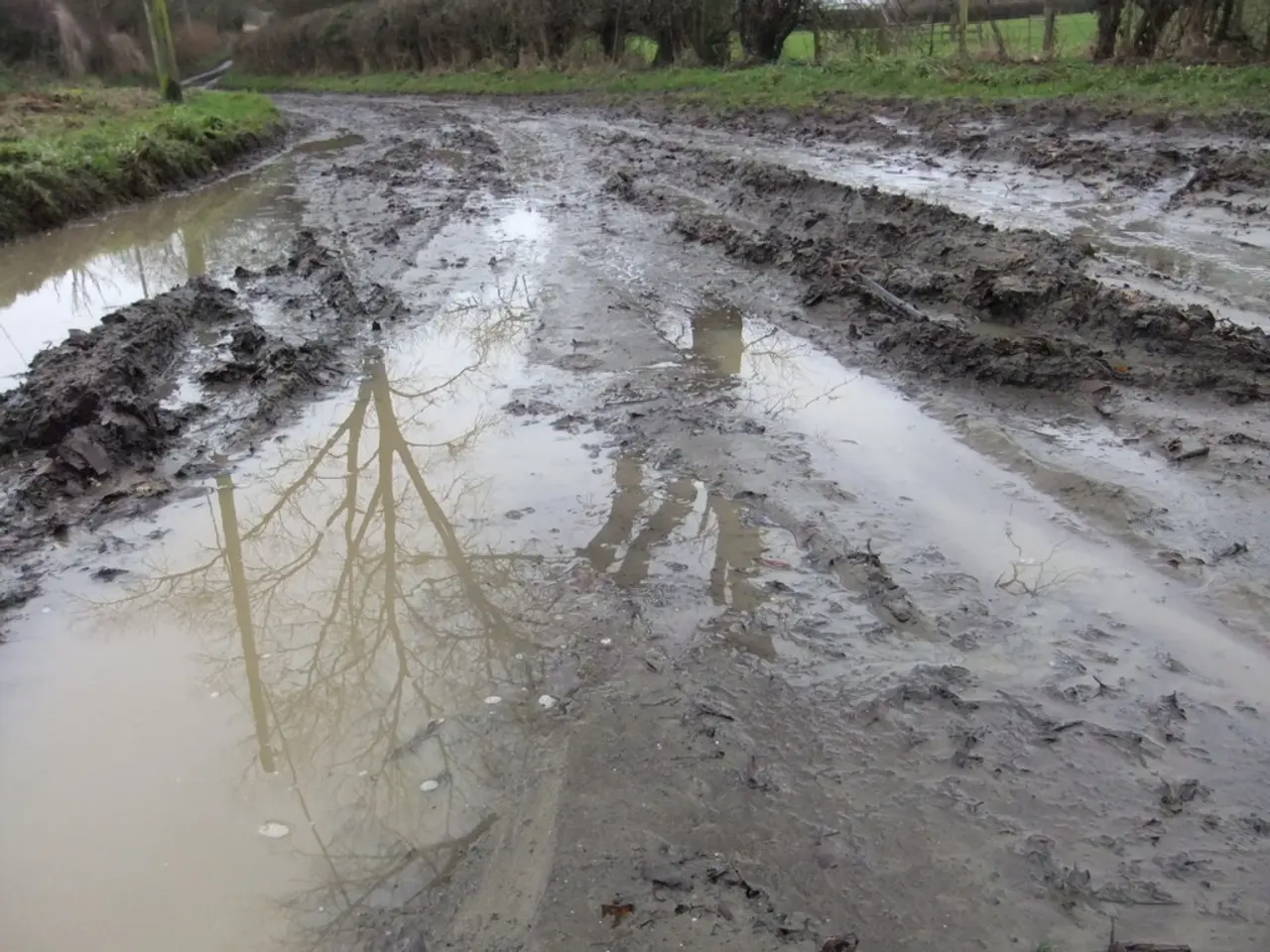Sophisticated Sensors Devised for Moisture Regulation Control
In the world of modern farming, precision is key. One innovative technology that's making a significant impact is the use of advanced smart soil moisture sensors. These sensors offer a game-changing solution for optimising irrigation schedules, reducing water waste, and improving crop yields.
The core of these sensors lies in their connectivity. IoT integration allows them to be connected to the Internet of Things, enabling remote, continuous soil moisture data collection and automated irrigation control. AI and machine learning algorithms process this data alongside weather and field conditions, dynamically adjusting irrigation to promote water savings and higher productivity.
Remote sensing, such as satellite and drone technology, complements these sensors by mapping soil moisture variability and predicting stress zones at field scale for targeted interventions. GPS and controlled traffic systems, when used in conjunction with sensors, enable precise machinery operation, reducing soil compaction and promoting better water infiltration.
The benefits of these advanced smart sensors are substantial. Efficient water use can potentially reduce irrigation water needs by up to 50% while maintaining or improving crop health. Preventing crop stress by maintaining optimal soil moisture maximises growth and yield. Lower irrigation and input costs result from data-driven resource management, and enhanced sustainability is achieved by reducing surface runoff, erosion, and nutrient leaching, preserving soil health for future productivity.
Effective implementation is crucial for maximising these benefits. Deploying sensor networks covering different field zones captures soil moisture variability. Integrating sensor data within IoT and AI platforms enables real-time monitoring and automated irrigation scheduling that adapts to weather forecasts and plant water needs. Combining these sensors with other soil sensors (nutrient, pH) and remote sensing tools fosters holistic soil health management and precision farming. Utilising GPS-guided machinery minimises soil compaction and optimises irrigation application. Lastly, training farmers to interpret data and maintain sensor systems ensures reliable operation.
By using these advanced smart soil moisture sensors, farmers can conserve water, save money, and grow healthier crops. The Internet of Things (IoT) plays a significant role in moisture control technology by allowing soil moisture sensors to connect to the internet, enabling remote monitoring and alerts. Water is a precious resource, and these sensors promote efficient water usage by allowing farmers to water only when necessary.
Integrating advanced smart soil moisture sensors into farming can be transformative. Crop yields are positively impacted, as these sensors enable farmers to grow healthier and more productive crops. The user receives updates on moisture data through a smartphone or computer, making informed decisions on when to water or fertilize. Together, these technologies create precision irrigation systems that use water more efficiently, enhance crop yields, reduce environmental impact, and contribute to sustainable agricultural practices. This holistic smart soil moisture monitoring combined with advanced analytics is transforming farming into a more productive and resource-conserving activity.
- In the realm of health-and-wellness, precision is also essential, with various therapies-and-treatments leveraging smart technology for personalized care.
- Environmental-science students are increasingly studying climate-change impacts on soil moisture, as it affects not only agriculture but also the entire ecosystem.
- The home-and-garden industry is capitalizing on smart-home-devices, creating smart gardens that can optimize water usage based on soil moisture data from sensors.
- Technology companies are developing gadgets that aid in gardening, such as connected watering systems that use smart soil moisture sensors to conserve water.
- As precision farming revolutionizes the agriculture industry, smart-home-devices are expected to influence home-and-garden developments, promoting healthier plants and efficient water usage.
- In the food-and-drink sector, chefs are experimenting with innovative cooking techniques that minimize resource use, adopting a lifestyle of sustainability in their work.
- Financial institutions are recognizing the potential of precision agriculture and are investing in the industry, considering it a viable option for long-term, profitable environmental solutions.





